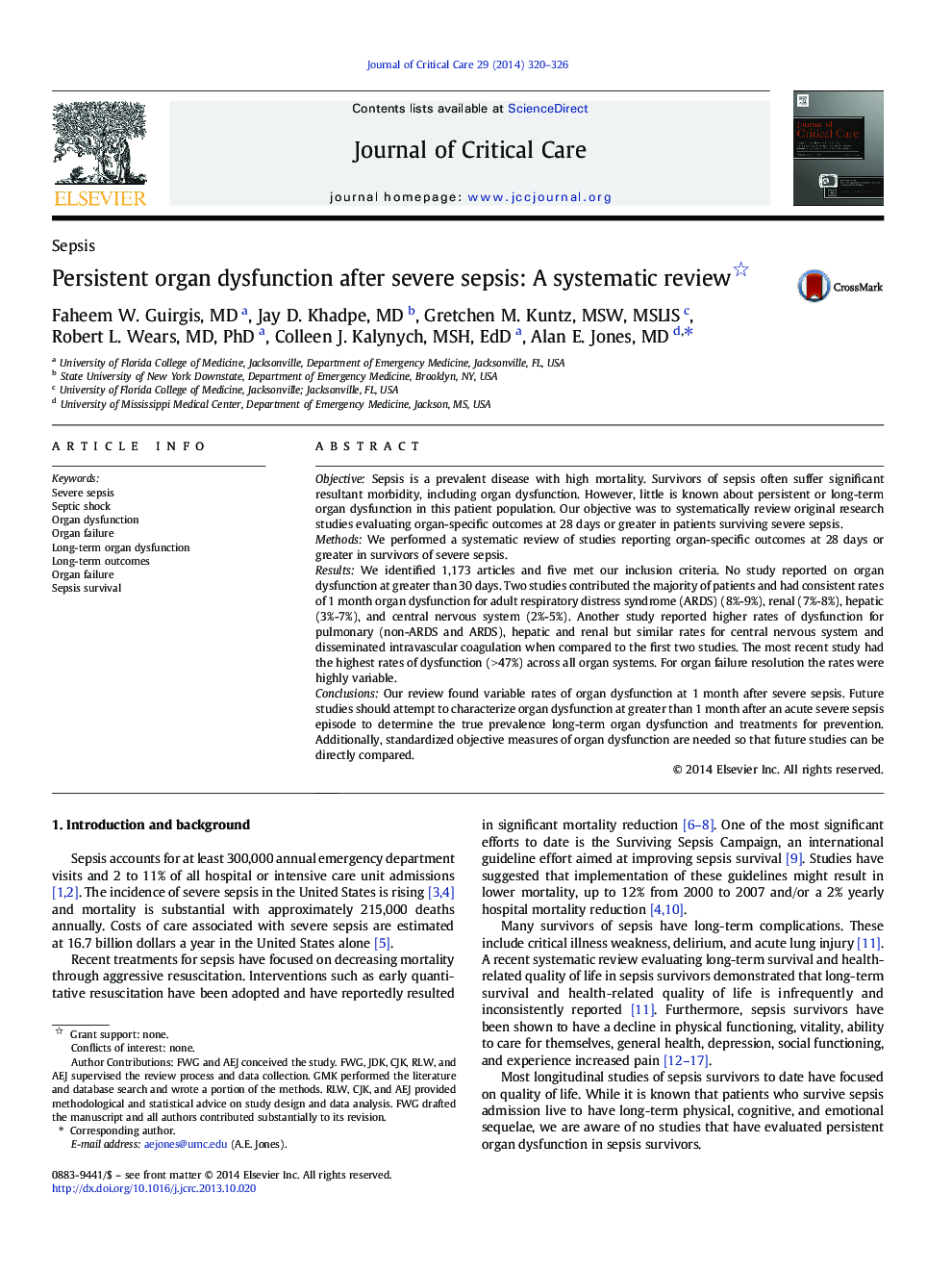| Article ID | Journal | Published Year | Pages | File Type |
|---|---|---|---|---|
| 2764772 | Journal of Critical Care | 2014 | 7 Pages |
ObjectiveSepsis is a prevalent disease with high mortality. Survivors of sepsis often suffer significant resultant morbidity, including organ dysfunction. However, little is known about persistent or long-term organ dysfunction in this patient population. Our objective was to systematically review original research studies evaluating organ-specific outcomes at 28 days or greater in patients surviving severe sepsis.MethodsWe performed a systematic review of studies reporting organ-specific outcomes at 28 days or greater in survivors of severe sepsis.ResultsWe identified 1,173 articles and five met our inclusion criteria. No study reported on organ dysfunction at greater than 30 days. Two studies contributed the majority of patients and had consistent rates of 1 month organ dysfunction for adult respiratory distress syndrome (ARDS) (8%-9%), renal (7%-8%), hepatic (3%-7%), and central nervous system (2%-5%). Another study reported higher rates of dysfunction for pulmonary (non-ARDS and ARDS), hepatic and renal but similar rates for central nervous system and disseminated intravascular coagulation when compared to the first two studies. The most recent study had the highest rates of dysfunction (> 47%) across all organ systems. For organ failure resolution the rates were highly variable.ConclusionsOur review found variable rates of organ dysfunction at 1 month after severe sepsis. Future studies should attempt to characterize organ dysfunction at greater than 1 month after an acute severe sepsis episode to determine the true prevalence long-term organ dysfunction and treatments for prevention. Additionally, standardized objective measures of organ dysfunction are needed so that future studies can be directly compared.
